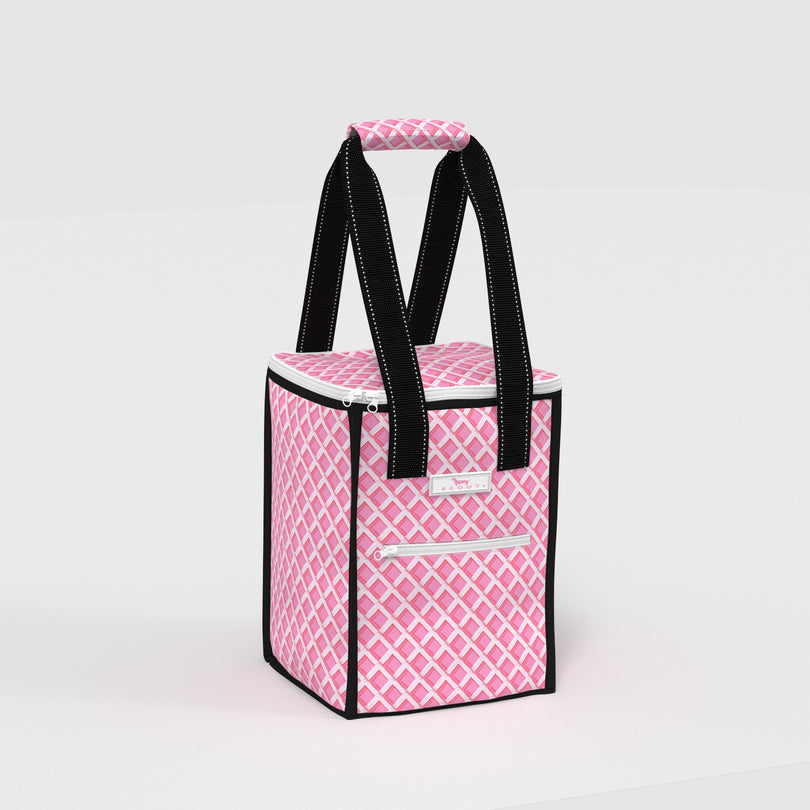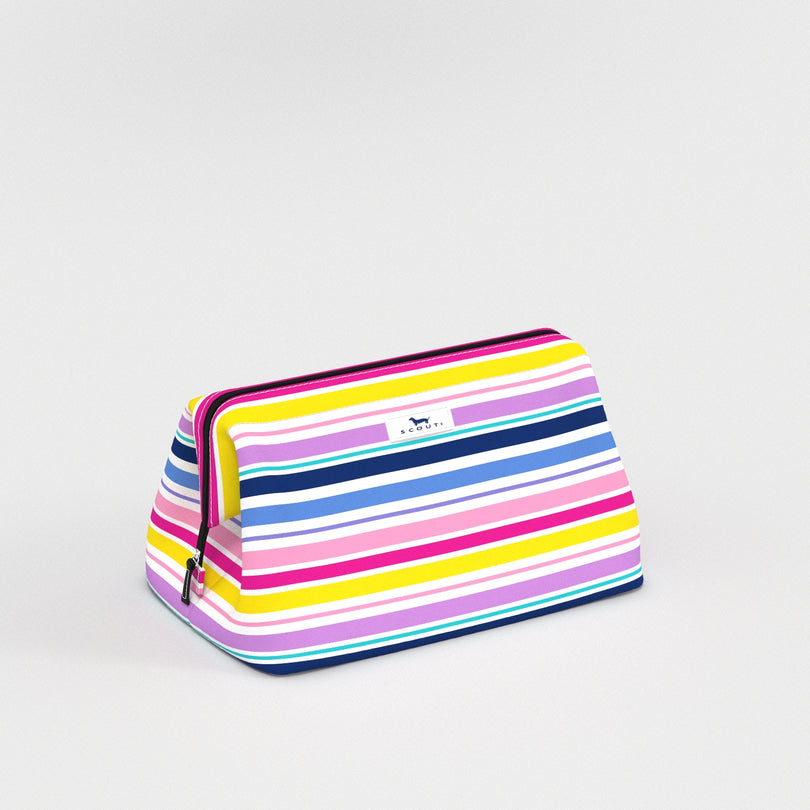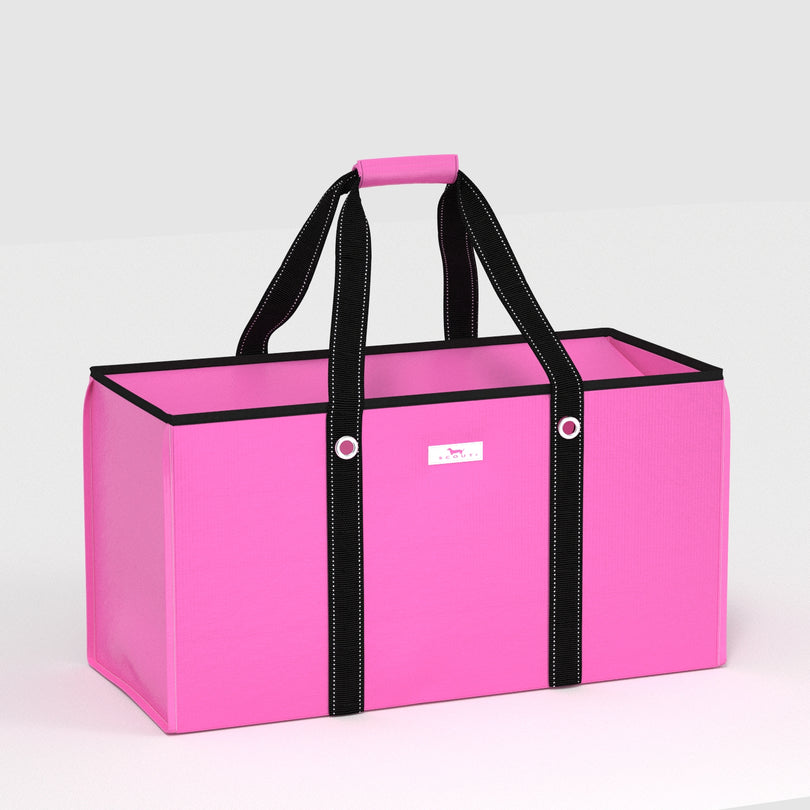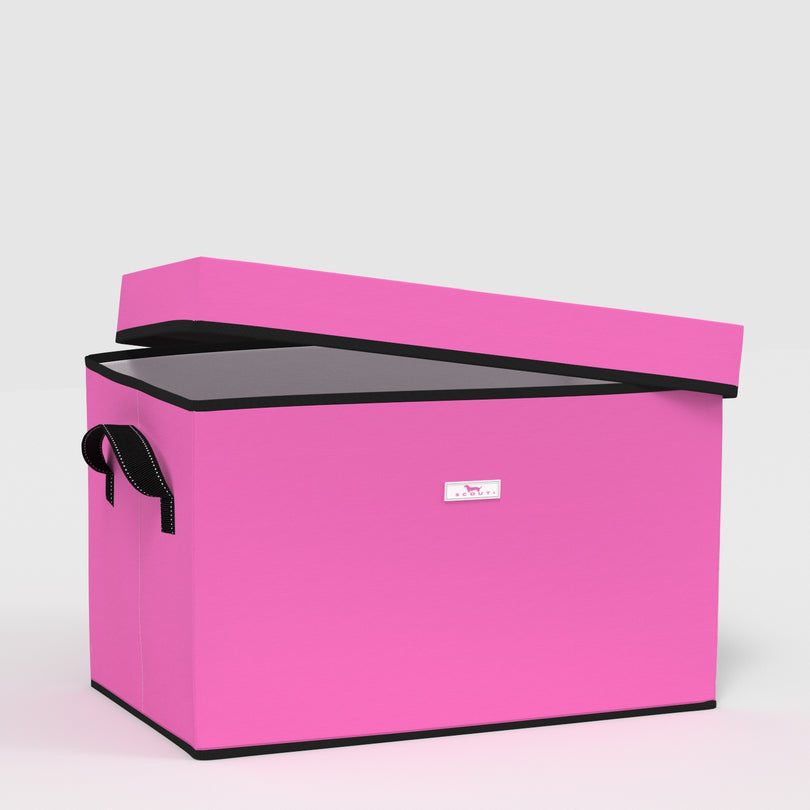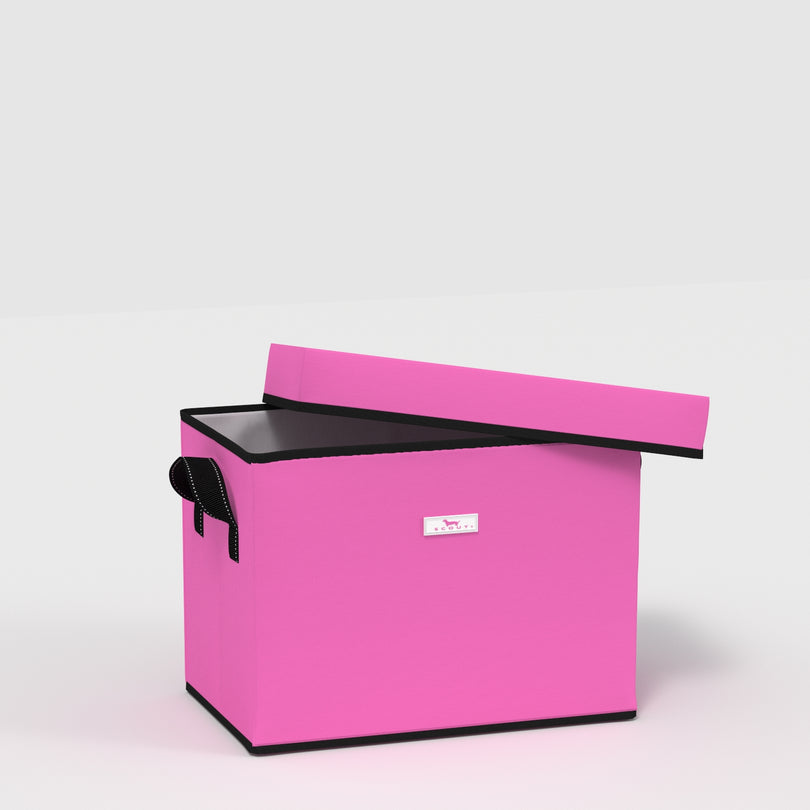Key Takeaways:
- Pack with a Plan: Start with your essentials before layering in extras. Planning your items in groups keeps everything easier to find and use at camp.
- Gear Can Be Stylish and Smart: SCOUT’s weekender travel bag, utility tote bags, and foldable travel bags are built for real life. Their thoughtful design helps you stay prepared without overpacking.
- Food and Hygiene Matter More Outdoors: Keeping meals fresh and yourself clean boosts comfort in the wild. Coolers and toiletry pouches from SCOUT help you manage both with ease.
From forest getaways to beachside campsites, a great weekend outdoors means finding the right balance between comfort and simplicity. The secret is choosing gear that keeps things organized, easy to carry, and ready for whatever the trip brings.
At SCOUT Bags, every adventure deserves a touch of effortless organization. Our bags are crafted to handle real life with ease, combining durability, wipe-clean materials, and thoughtful design. From our trusted weekender bag to our versatile utility tote bags and space-saving foldable travel bags, SCOUT keeps every item in its place so you can focus on making memories.
In this piece, we’re sharing a complete checklist for what to pack for a camping trip, along with smart ways to stay organized. Think of this as your roadmap to efficient packing, fewer forgotten items, and more time enjoying the great outdoors.
Start With The Essentials: Your Camping Must-Haves
Every great camping trip begins with the right foundation. These are the items that make your experience comfortable, safe, and stress-free:
- Shelter: A reliable tent is non-negotiable. Choose one that suits your group size and is easy to set up and break down quickly. Don’t forget the ground tarp and sturdy stakes to protect against damp ground and shifting weather.
- Sleeping Gear: A good night’s sleep outdoors starts with the right gear. Pack a sleeping bag rated for the temperature, a sleeping pad or inflatable mattress, and a compact pillow. These three work together to keep you warm, supported, and rested for the day ahead.
- Lighting: Once the sun sets, visibility is everything. A headlamp lets you move hands-free, and a lantern can light up your entire campsite. Always bring extra batteries to avoid running out of power.
- Safety Equipment: Accidents are never planned, but being ready for them is part of smart packing. A well-stocked first-aid kit should include bandages, antiseptic wipes, and pain relievers. Add a multi-tool for quick fixes and a whistle for emergencies.
- Water: Hydration should never be an afterthought. Bring a reusable water bottle for each person and a portable water filter if your site doesn’t have access to clean water.
- Fire Materials: Campfires can serve various purposes, including warmth, cooking, and social gathering. Keep waterproof matches or a reliable lighter in a dry pouch. Fire starters, such as cotton balls soaked in petroleum jelly or a compact fire log, can help get the flames going quickly.
- Personal Hygiene Items: Keeping clean while camping is all about the basics. Pack a toothbrush, toothpaste, biodegradable soap, hand sanitizer, and a quick-dry towel. These small comforts make a big difference after a full day outdoors.
Keep It Cool: Packing Food And Drinks In Style
Food is the heart of any good camping trip. From morning coffee to late-night s’mores, meals and snacks bring people together and keep the energy up. Here’s how to pack smart, stay fresh, and enjoy every bite at camp:
Plan Your Meals With Purpose
Start with a simple menu. Think breakfast, lunch, dinner, and a few snack breaks in between. Prepping ingredients at home saves time at the campsite and keeps things cleaner and more organized.
Choose The Right Cooler
Coolers are a non-negotiable part of your camping trip essentials. SCOUT’s Pleasure Chest Cooler or Stiff One Cooler fits full meals, chilled drinks, and even prepped ingredients without the bulk of hard-sided options. They’re easy to carry, leak-resistant, and wipe clean in seconds. Just remember to bring a quality ice pack to ensure your items remain at the desired temperature.
Pack Dry Goods Separately
Keep pantry items like bread, granola bars, trail mix, and coffee grounds in their own sealed container. This helps avoid spills and makes it easier to grab what you need without digging. Stashing dry goods in a durable tote bag, such as one from SCOUT, keeps your food station tidy and within easy reach.
Don’t Forget Cooking Gear
Basic tools make a big difference. Bring a portable stove or campfire grate, along with utensils, a spatula, lightweight cookware, and reusable plates and cups. Include a sponge and a small bottle of biodegradable soap so cleanup is quick and straightforward.
Keep Drinks Easy To Grab
Cold water, juice boxes, or something fun for the adults, drinks are often the first thing people ask for. Use a small cooler for drinks only, and keep it near the camp chairs or picnic area. It makes hydration and happy hour more enjoyable for everyone.
Clothes That Work Hard: What To Wear And Tips For Packing
Packing clothes for a camping trip is all about flexibility and comfort. You want to be prepared for changing weather, different activities, and everything in between. Choosing the right layers and organizing them well will save time and space:
Prioritize Versatile Layers
Start with moisture-wicking base layers that keep you dry and comfortable. Add mid-weight items like fleece or lightweight jackets for warmth, and a waterproof outer layer for rain protection. Stick to pieces you can wear more than once and easily mix and match.
Bring Extras For Comfort
Pack extra socks, underwear, and at least one full change of clothes. These small additions can make a big difference after a hike or unexpected weather. A warm hat and lightweight gloves are worth bringing, even during warmer months.
Shoes Built For Camp Life
You’ll want at least two types of shoes: one for hiking and one for around camp. Hiking boots or trail shoes should be broken in and supportive. Slip-on sandals or waterproof shoes are perfect for relaxing by the fire or making a quick trip to the restroom.
Keep It All Easy To Access
Roll or fold your clothes and group them by type. Use packing cubes or pouches to keep clean and worn items separate inside your weekender bag or foldable travel bags. This makes it easy to grab what you need without having to empty the entire contents.
Clean, Dry, and Ready: Toiletries And First Aid
Clean gear and good hygiene help you feel refreshed, even when you're miles from home. A well-packed toiletries kit and a few first aid basics can make a huge difference during your camping trip. Keep everything simple, compact, and ready to go.
Toiletries That Cover The Basics
Bring the essentials: toothbrush, toothpaste, biodegradable soap, a washcloth or towel, deodorant, and face wipes. These items take up little space but go a long way in keeping you comfortable. Choose travel-size versions and store them in a toiletry bag.
Stay Dry And Fresh
Pack quick-dry towels, extra hair ties, and dry shampoo for convenience. A small mirror and hand sanitizer are also great to have nearby. Keep everything organized in a dedicated spot so you can access it quickly.
First Aid Essentials
Accidents can happen, so a well-stocked first aid kit is essential. Include adhesive bandages, antiseptic wipes, tweezers, allergy meds, and pain relief tablets. Store it in a waterproof pouch and keep it in a visible location.
Separate For Easy Access
Divide toiletries and first aid into separate pouches or cubes. This keeps everything clean and prevents spills from affecting other gear inside your weekender bag or utility tote bags. Label or color-code them to make things easy to find.
The Smart Exit: Packing Up Without The Stress
Leaving camp should feel as smooth as arriving. A little prep on the front end makes breaking down easier and faster. This is how to wrap up your trip with ease and keep everything clean, sorted, and ready for your next adventure:
Clean Before You Pack
Wipe down gear, rinse off cookware, and shake out your tent before putting anything away. This helps prevent messes from transferring into your bags. It also saves time when you unpack at home.
Sort Dirty From Clean
Use a designated pouch or bin for dirty laundry. Keep clean clothes and gear in their original pouches or packing cubes to avoid extra laundry. This also makes unpacking feel much more manageable.
Check The Grounds
Do a final walk-through of your campsite before leaving. Pick up any trash, double-check for forgotten items, and ensure fires are completely extinguished. It shows respect for the space and keeps things safe for the next visitors.
Pack It All Back With Intention
Load your foldable travel bags, utility tote bags, and weekender bag in reverse order. Place the least-used items at the bottom and your travel essentials at the top. That way, what you need for the drive home is always within reach.
Final Thoughts
Camping is more than a weekend escape; it is an opportunity to slow down, reconnect, and appreciate the simplicity of life outdoors. When you plan ahead and stay organized, you create space for comfort, calm, and genuine connection. Each sunrise, shared meal, and quiet moment under the stars becomes a reminder of how refreshing it feels to unplug and be present.
No matter where your campsite is set, the heart of every great adventure lies in preparation and perspective. Packing with intention enables you to approach every experience with ease, transforming even the simplest trip into something truly memorable. With the right essentials and an open mindset, the outdoors becomes not just a destination but a way to recharge and rediscover what matters most.
Read Also:
- What To Pack For A Weekend Trip: 10 Must-Have Essentials
- What To Pack In Diaper Bag: The Complete New Parent Checklist
- Essential Things To Pack For Vacation: The Ultimate Guide With Stylish SCOUT Bags
Frequently Asked Questions About What To Pack For Camping
What should you not bring on a camping trip?
Avoid packing valuables, unnecessary electronics, and anything fragile or hard to clean. Stick to multi-use items that add function without taking up space. Keeping it simple helps you stay organized and enjoy the trip more.
How do I keep food from spoiling during a camping trip?
Pack perishable items in an insulated cooler and keep it out of direct sunlight. Use ice packs or frozen water bottles to maintain a safe temperature. Organize meals by day so you only open the cooler when needed.
What is the best way to plan meals for camping?
Keep your menu simple and prep ingredients at home before packing. Aim for meals that require minimal cooking and cleanup. Always include a few no-cook options for flexibility.
How do I pack for camping with limited space?
Choose gear and clothing that can be rolled, folded, or nested to save room. Use packing cubes or soft-sided bags to organize your items into compartments. Stick to the essentials and eliminate duplicates across the group.
What should be in a camping hygiene kit?
Include a toothbrush, toothpaste, biodegradable soap, face wipes, deodorant, and hand sanitizer. Quick-dry towels and a compact mirror are also handy. Keep everything stored in a waterproof pouch or toiletry bag.
How do you manage waste at a campsite?
Bring trash bags, food waste containers, and reusable items to reduce waste. Keep all waste sealed and secured away from animals. Always follow Leave No Trace guidelines before heading out.
Is it safe to bring a cooler into bear country?
Yes, but it must be a bear-resistant model or stored properly when not in use. Keep coolers locked in a vehicle or a designated storage box when they’re unattended, and never store food or scented items in your tent. It’s also smart to check local regulations and park rules, as many areas have specific requirements for how to store food and gear to keep both you and the bears safe.
What’s a good clothing rule for camping?
Pack clothing in layers so you can adapt to changing temperatures. Avoid using cotton as a base layer and opt for quick-dry materials instead. Bring extra socks and weather-appropriate accessories.
How do I keep things dry during a rainy camping trip?
Store essentials in waterproof bags or zip-top pouches. Keep a tarp under your tent and one above if possible. Pack a change of clothes in a sealed bag or compartment, just in case.
What’s one thing people always forget to bring camping?
Many people forget to bring a small repair kit for their gear. A few zip ties, extra rope, and duct tape can quickly solve unexpected issues. It’s a simple addition that makes a big difference.

